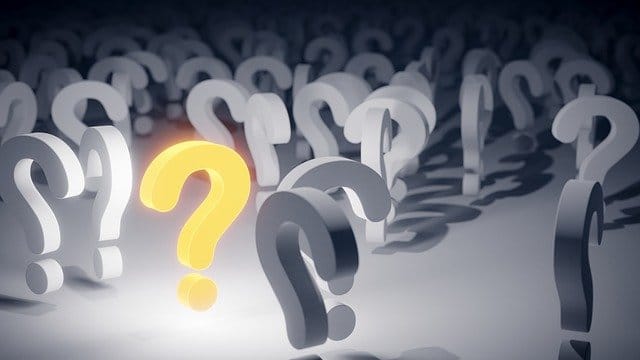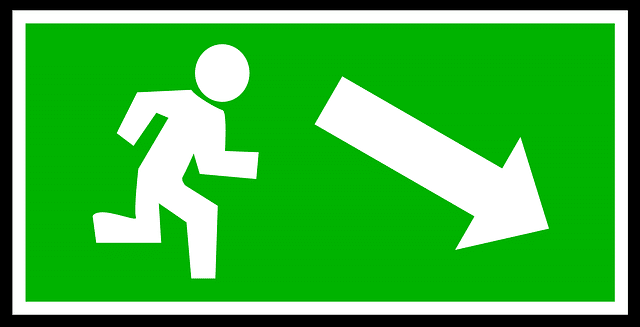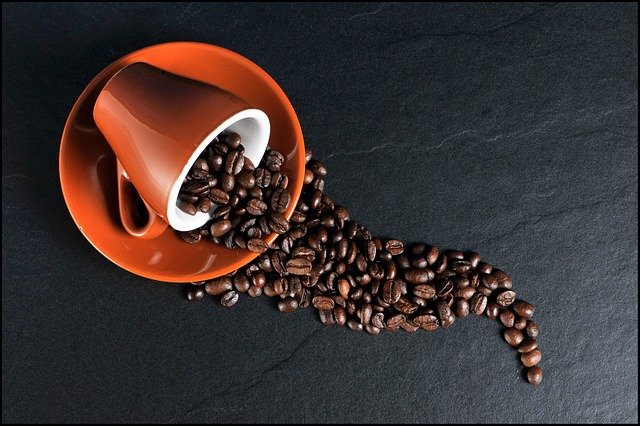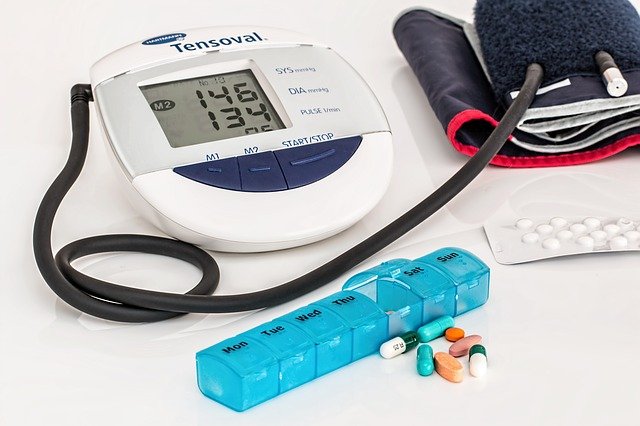Reduce Caffeine to Lower Blood Pressure
It’s not just caffeine. There are many natural substances that can cause blood pressure to rise, but caffeine is one of the most common culprits.
Caffeine is found in coffee, tea, soda and chocolate (among other things), which means it can be tough to avoid if you’re trying to lower your caffeine intake.
But it’s worth remembering that caffeine isn’t all bad – it has some positive effects on mood and energy levels as well!
If you want to cut back gradually on caffeine without feeling like your life is about to fall apart, try swapping out caffeinated drinks for decaf versions or non-caffeinated beverages altogether.
Also consider cutting down on caffeine during the late afternoon hours when blood pressure tends to rise anyway.
You may not want to cut caffeine out completely, but finding a caffeine intake that works for you and helps you maintain healthy blood pressure is well worth the effort!
Diet and supplements that provide an increase of nitric oxide can dramatically lower blood pressure. Click here to learn more about Nitric Oxide Therapy
6 Questions About Caffeine and It’s Effects on BP

1. Will caffeine cause blood pressure to rise?
Yes, caffeine can raise blood pressure and it’s important to limit caffeine intake if you want to maintain healthy blood pressure levels.
There does seem to be a consensus among researchers that caffeine consumption can impact blood pressure levels, though there is some disagreement about exactly how this works.
Some believe that caffeine stimulates the nervous system, leading to an increase in heart rate and blood pressure.
Others argue that we need more research into the chemical reactions that take place in the body after consuming caffeine, as these may also impact blood pressure levels.
Regardless of whether or not it directly raises blood pressure, it is clear that limiting your intake of caffeine – if you are concerned about your blood pressure – can help ensure healthy levels over time.
After all, even a small increase in blood pressure can exacerbate conditions such as hypertension and cardiovascular disease, which can eventually lead to serious health consequences.
But reducing caffeine isn’t the only way to lower blood pressure – regular exercise and eating a healthy diet are also effective at helping you maintain good blood pressure.
2. How does caffeine affect blood pressure?
Caffeine is a stimulant that can cause it to rise in both healthy people and those who have hypertension.
Drinking caffeine will usually raise blood pressure levels anywhere from one to four hours after consumption, dropping back down to base line after that time period.
Researchers have found that caffeine can temporarily increase a person’s blood pressure levels by constricting blood vessels.
This can be especially problematic for people who have hypertension, as it puts them at risk of further complications due to increased blood pressure.
Nevertheless, the effects of caffeine on blood pressure appear to vary from person to person and can also depend on other factors like age and overall health status.
So while some people might need to limit their caffeine intake in order to keep their blood pressure at healthy levels, others may be able to enjoy moderate amounts without worrying about negative consequences.
Ultimately, the best thing to do is talk with your doctor about how much caffeine you should be consuming in order to maintain healthy blood pressure levels.
3. How does caffeine impact older adults with high blood pressure?
There is a lot of conflicting research on how caffeine might affect older adults with high blood pressure.
Some studies suggest that it can have negative effects, increasing blood pressure and potentially putting these individuals at risk for other health issues.
However, other research has shown that caffeine may actually help to improve heart function in these individuals, reducing strain on the cardiovascular system and making it easier for their bodies to handle changes in blood pressure levels.
Ultimately, the impact of caffeine on hypertensive older adults will depend on a number of different factors, including their overall health status, how much they regularly consume, and what types of caffeinated products they are consuming.
Because there is so much variability between individuals, it’s important for older adults with hypertension to work closely with their doctors to track and monitor any changes related to blood pressure that occur after drinking caffeine.
Through careful monitoring and adjustments as needed based on results, these individuals can ultimately optimize their health and maintain good blood pressure control throughout their lives.
4. How caffeine affects blood pressure in women?
Caffeine can have different effects on blood pressure in women than it does in men due to the influence of hormones.
Most caffeine consumers will experience a rise in blood pressure anywhere from 60 minutes to 4 hours after caffeine intake.
Women are more likely than men to have caffeine-related complications, but caffeine doesn’t pose any additional risk for women who already have caffeine-related cardiovascular problems.
5. How caffeine affects blood pressure in people with hypertension?
People with hypertension should be particularly careful about caffeine intake because caffeine can increase the risk of caffeine-related cardiovascular complications.
If you have hypertension and want to cut caffeine out of your life, try drinking decaf coffee or caffeine-free tea in place of caffeinated versions.
6. What are sources of hidden caffeine?
Caffeinated drinks such as soda and energy drinks can often contribute to caffeine intake when caffeine isn’t even wanted or needed.
Some source of caffeine are:
1. Coffee
While coffee is the most obvious source of caffeine, there are actually a few different types of coffee that contain hidden sources of caffeine.
For example, decaf coffee typically contains small amounts of caffeine, as the decaffeination process is not 100% effective.
Additionally, some flavored coffees may contain added caffeine in order to enhance the flavor.
2. Tea
Like coffee, tea is another common source of caffeine.
However, there are a few types of tea that contain hidden sources of caffeine.
For example, green tea and black tea typically contain more caffeine than other types of tea, such as herbal tea.
Additionally, some teas may be fortified with additional caffeine in order to provide a boost of energy.
3. Soda
Soda is another common source of caffeine, as many brands add caffeine to their products in order to provide a boost of energy.
However, there are a few types of soda that contain hidden sources of caffeine.
For example, root beer and cream soda typically do not contain caffeine, while cola does.
Additionally, some energy drinks may be added to sodas in order to increase the caffeine content.
4. Chocolate
Chocolate is another food that contains hidden sources of caffeine.
While dark chocolate typically contains more caffeine than milk chocolate, both types of chocolate can contain small amounts of caffeine.
Additionally, some chocolate products may be fortified with additional caffeine in order to provide a boost of energy.
5. Energy Drinks
Energy drinks are one of the most common sources of hidden caffeine.
Many energy drinks contain large amounts of caffeine, as well as other stimulants such as guarana and taurine.
Additionally, some energy drinks may be added to other beverages in order to increase the caffeine content.
6. Sports Drinks
Sports drinks are another common source of hidden caffeine.
While many sports drinks do not contain caffeine, some brands add it to their products in order to provide a boost of energy.
Additionally, some sports drinks may be fortified with additional nutrients and electrolytes that can help athletes perform better during physical activity
Tips on How to Reduce Caffeine Intake

1. What caffeine drinks should I swap out for decaf?
Ask you local coffee shop if they do caffeine free versions of your favorite drinks.
Decaffeinated tea is also good alternative to caffeine teas.
If you want an energy drink, try an electrolyte drink like Gatorade or Powerade (Gatorade has little caffeine).
2. How should caffeine drinks be substituted?
I would recommend choosing 2 caffeine-free drinks to drink in place of 1 caffeine drink.
Try and space these caffeine free options out evenly throughout the day if possible.
If you do not like caffeine free options then try and halve main caffeine content (i.e. 1 tea instead of 2 cups or 1 coffee instead of 2).
3. Are caffeine free options nutritionally the same?
Pre-made decaf teas and coffees are typically sweetened with artificial sweeteners which you may not like the flavor of.
If this is the case, try caffeine free herbal teas. Or make your own drinks and do not use pre-made.
Try caffeine free drinks wherever possible to get rid of caffeine.
If caffeine free options are not available, try and halve caffeine content in caffeine drinks.
4. Should caffeine intake be reduced slowly?
Yes, caffeine is a drug with withdrawals when you cut it out of your diet.
Reduce caffeine incrementally to avoid the consequences of caffeine withdrawal (see point 5).
Kicking caffeine too quickly can lead caffeine withdrawal symptoms which include fatigue, headaches, concentration issues and flu like symptoms.
5. What caffeine withdrawal symptoms can occur?
Caffeine withdrawal usually begins around 12-24 hours after the last caffeine intake has occurred.
Symptoms of caffeine withdrawals are fatigue, headache, concentration issues and flu like symptoms.
6. How caffeine intake affects anxiety and irritability?
Caffeine stimulates the HPA axis which causes cortisol to be released along with adrenaline.
This makes caffeine a stress inducer initially but over time caffeine consumption decreases levels of serotonin in the brain resulting in a drop of mood, increased anxiety and irritability.
Diet and supplements that provide an increase of nitric oxide can dramatically lower blood pressure. Click here to learn more about Nitric Oxide Therapy
Conclusion for Reduce Caffeine to Lower Blood Pressure
Caffeine is a drug that can have negative consequences when consumed in high doses or without caution.
This article has outlined some tips on how to reduce caffeine intake, including swapping out caffeinated drinks for decaf versions, spacing out caffeine-free drink options evenly throughout the day, and reducing caffeine intake incrementally.
Reducing caffeine intake can be difficult, but it’s important to do so if you want to avoid the negative side effects of this drug.
FAQ
How Much Caffeine Should I Drink?
The FDA recommends 400mg per day for healthy adults. This is about 4-5 cups of coffee. Pregnant women should limit themselves to 200mg or 2 cups of coffee a day.
How Much Caffeine is in a Cup of Coffee?
A typical cup of coffee has 95mg of caffeine. However, this can vary depending on the type of coffee bean, brewing method, and serving size.
What are the Effects of Caffeine on Blood Pressure?
Caffeine can raise blood pressure due to its stimulating effect on the nervous system. It also constricts blood vessels and increases heart rate. These effects can be magnified in people who are sensitive to caffeine or who consume large amounts of caffeine.
How Does Caffeine Affect Anxiety and Irritability?
Caffeine stimulates the HPA axis which causes cortisol to be released along with adrenaline. This makes caffeine a stress inducer initially but over time caffeine consumption decreases levels of serotonin in the brain resulting in a drop of mood, increased anxiety and irritability.



Pingback: 16 Easy Steps To Lower Blood Pressure Naturally - Stop Feeling Old